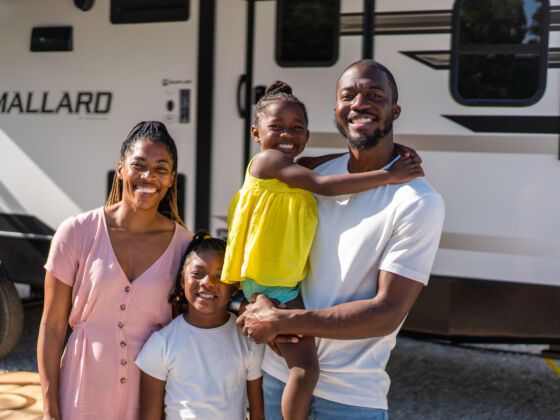Our family units and personal pods have been hunkered together at home since the pandemic started over a year ago. It was cozy at first, but the novelty has worn off, right? Instead of really being together, we’re just sharing space. Sometimes in the same room, sometimes not. It’s quantity time — not quality time.
Dinner table talk is about what you miss, what you’re dreaming about doing again someday soon. Come to find out, the things we miss most aren’t grand events but simple affairs: shopping, dining, socializing, traveling. You miss these things so much, you wax on with specifics.
“Road trips,” your oldest son says as he swirls spaghetti with his fork. “I miss road trips.”
He doesn’t say trips. He says road trips. No hotels, no flights, no long lines at theme parks, public pools, and other crowded places. What if you could make it happen? What if you could take your home — and your family — safely on the road?
Well, you can, for less than $5 a day.
Wondering how to unlock your family travel dreams? Learn how you can travel differently in an RV.
1. You can liberate yourselves from itinerary fatigue.
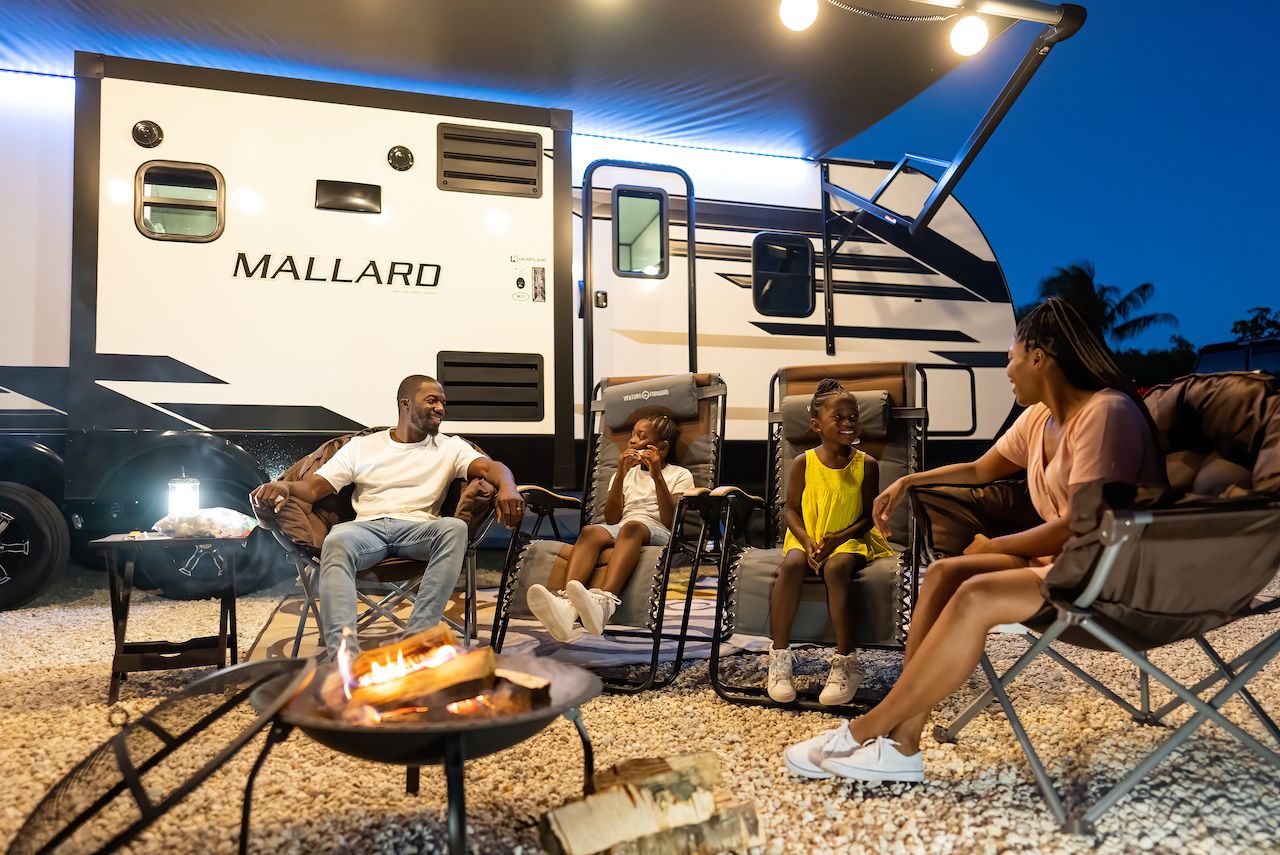
Photo: Tyler Cave
Planning a road trip takes so much energy — you might spend hours plotting a route connecting tourist attractions, rest areas, and hotels. But with an RV, you can push pause on that planning.
Choose a spot to spend the night, and then let the day unfold — or the week. Let everyone wake up when they want. Play chess with the kids, build castles in the sand, explore trails around camp, and see where the day takes you. Wherever it goes, you’ll have time for it.
Without a strict itinerary, you’re free to find the joy in what’s around you. RV adventures need not be distant to be fruitful. That roadside farmers market along the scenic byway sells delicious local harvest. Now you have time to shop, cook, and enjoy a meal by the fire with the fam.
2. You can be intentional with food.
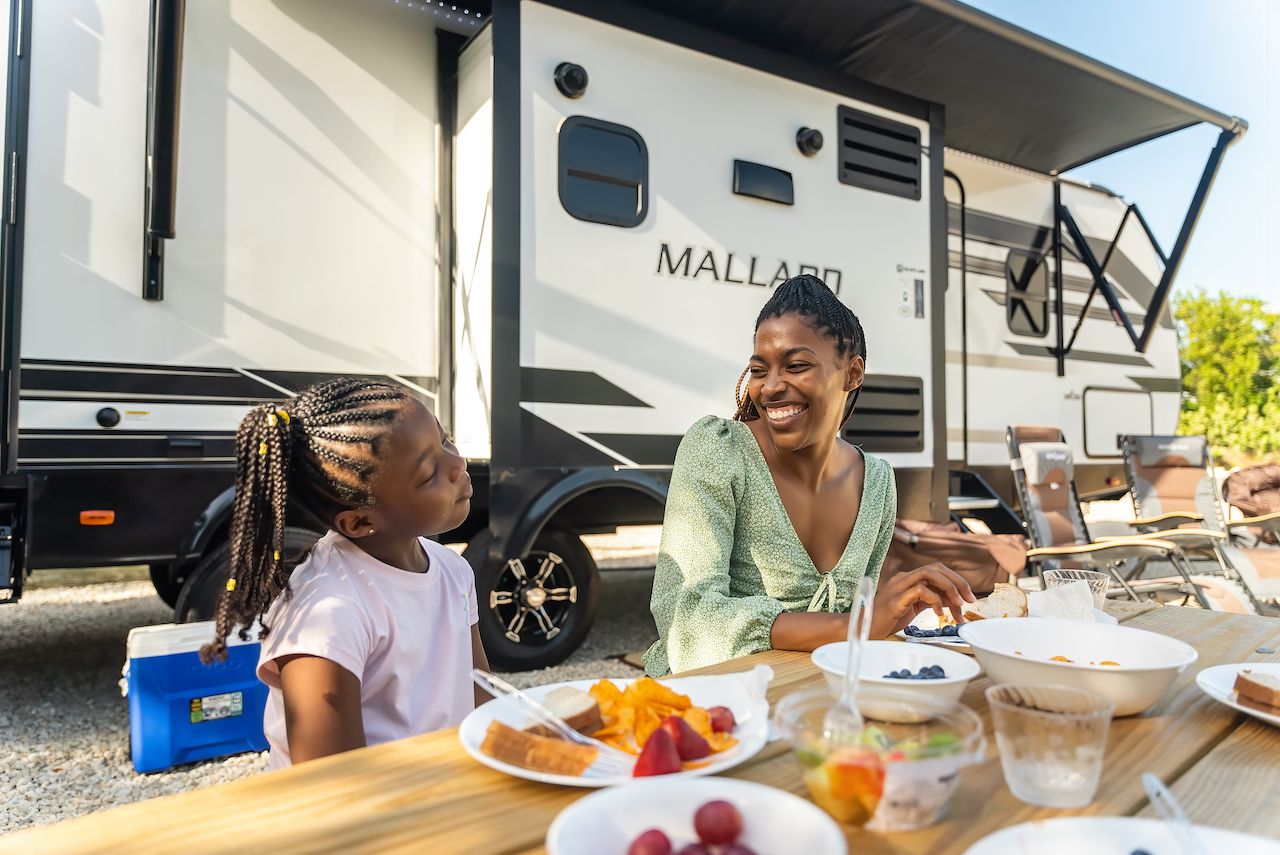
Photo: Tyler Cave
You’re going to need food on the road, and you can have it cheaper, better, and faster with an RV. You are, after all, traveling with your kitchen. Use it to your benefit!
A little cooking prep before you leave allows more time for exploring the unexpected, and leaves more free time for the family chef. Prepare dinners ahead so all you have to do is heat them when it’s chow time. Prep all the ingredients for soup or chili and drop it in a slow-cooker. Head out on your day’s adventures and come home to a fragrant RV filled with the smell of homemade soup.
To mix things up, designate one night on the road for cooking from scratch. Go overboard with a multi-course meal on the beach, including a dutch-oven dessert made with cherries from the local farmers market. Turn the making and baking into the activity for the day. You have the time because your plans are light. Cooking under the stars gives “dining out” a whole new meaning.
3. You can be wise with play.
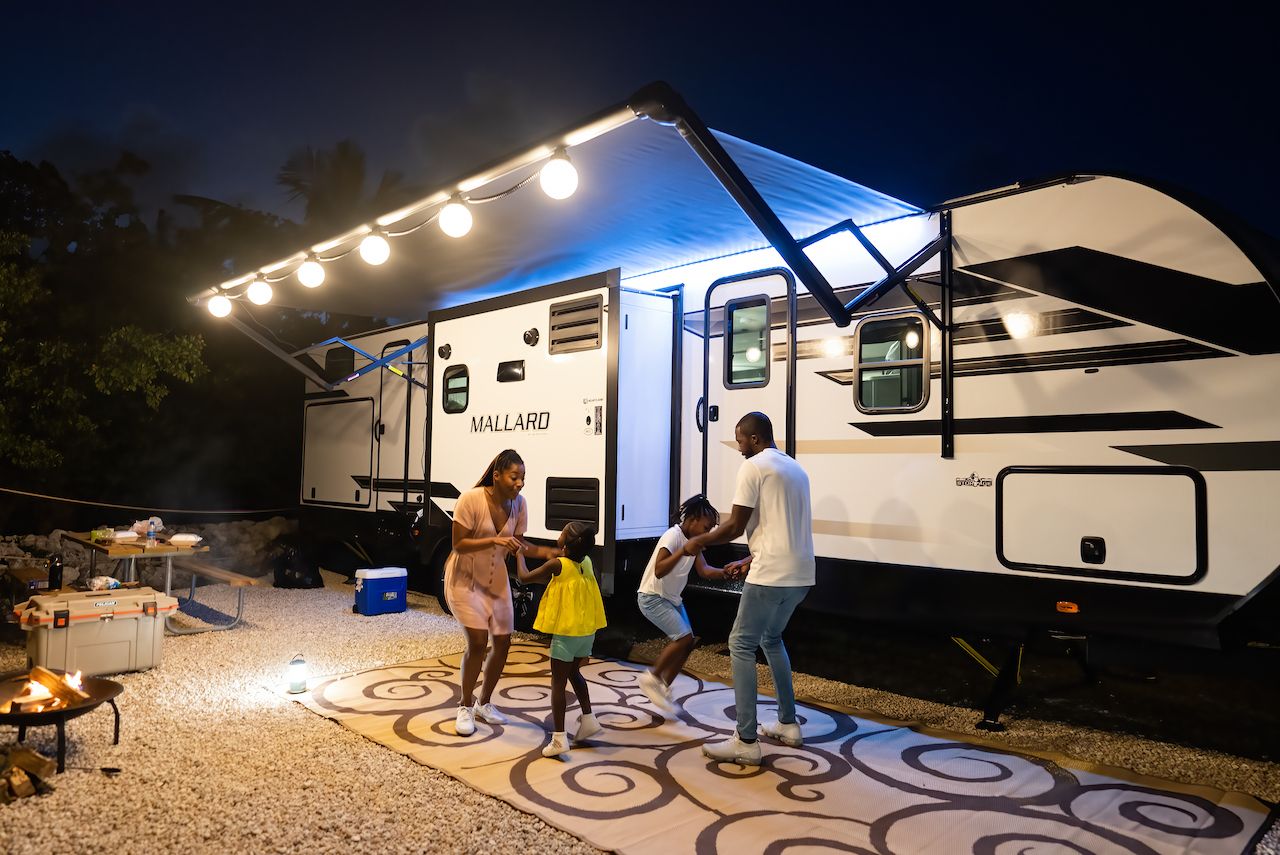
Photo: Tyler Cave
Checking out of school when you’re road-tripping doesn’t mean checking out on education. There are unobtrusive ways to integrate education into your family’s RV adventure. Polish up on geology by rockhounding. Score an astronomy lesson by stargazing. Tackle orienteering by map reading. Plus, there’s all that time for reading, and all that time away from screens.
Many national parks offer Junior Ranger programs, which cover natural resource awareness. The Forest Service appreciates anyone volunteering for trash duty. Make a game of it: Carry extra garbage bags in your RV, and see who can collect the most plastic water bottles or find the oldest, coolest piece of junk — winner gets the chair by the fire!
Lessons on the road are more like field trips — don’t you remember those more than your textbooks?
4. You can find a spot to call your own, even if just for a night.
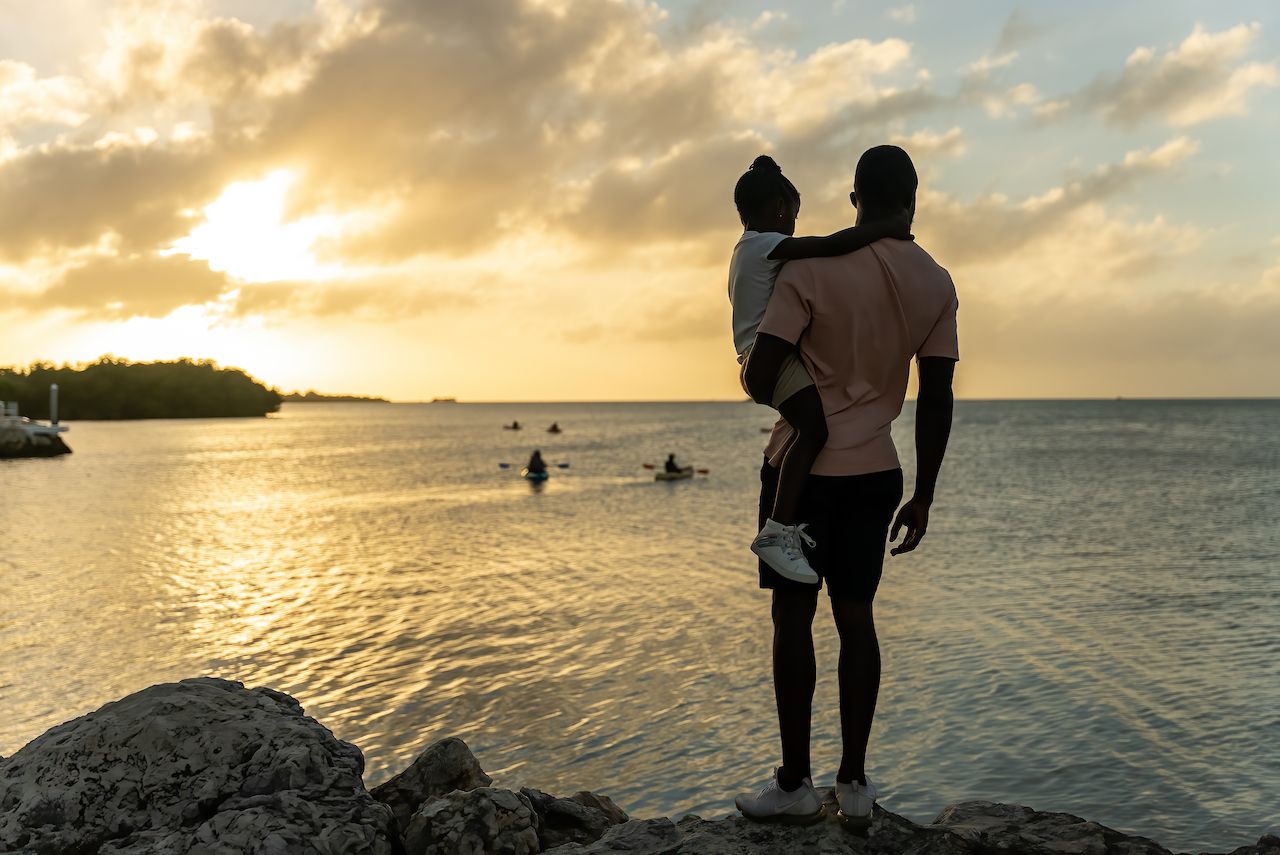
Photo: Tyler Cave
Campgrounds can get crowded — try a more undeveloped spot, perhaps one without hookups. Your house is designed to go anywhere, so don’t be afraid to try boondocking, where you don’t plug into power and water provided by someone else.
America is fortunate to have so much public land — land owned by all of us. State and federal agencies manage it on behalf of the people, and it’s ours to enjoy. There are patches of public land everywhere, coast to coast and in between, and most public land is suitable for RV camping.
Maybe it’s a federally managed campground in a national forest, or perhaps simply an unmarked flat spot off a dirt road on Bureau of Land Management (BLM) land. Boondocking here will be quiet and remote — just remember to “leave no trace” when you move on.
Even one night of open space provides you the opportunity to hear the river, the woods, the wild. Those yellow orbs in the dark aren’t lights over the campground bathrooms — those are the eyes of a boreal owl.
5. You can celebrate simplicity, together.
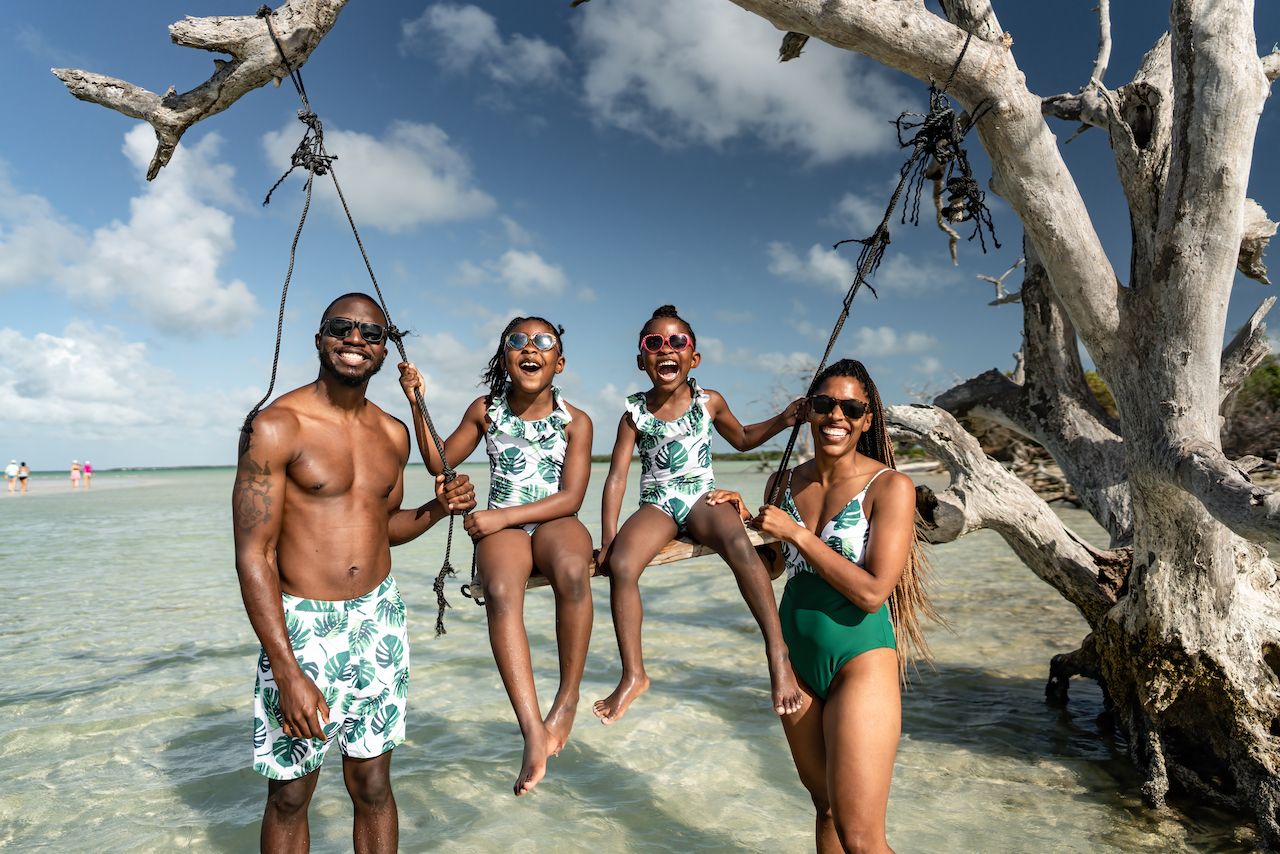
Photo: Tyler Cave
At some point during your RV trip, your family — your pod — will break free from the routine and connect over the new surroundings. When? Maybe it’ll be on the day you go nowhere, when the driver has a day off and everyone else can unwind. Maybe it’ll be halfway across a lonely highway, as you pull over for a bathroom break and linger to admire the silhouette of mountain peaks in the distance.
The reconnect will happen somewhere between camp coffee and campfire, between skipping rocks, swimming lakes, staying up late, and rising early. No one is glued to a screen, but everyone is heads down — you’re rockhounding in the desert, combing for shells at the beach, or scrambling up a tricky mountain trail. You’re banded together, bonded over your newfound curiosities. You’re somewhere far from home and feeling right at home, together.

